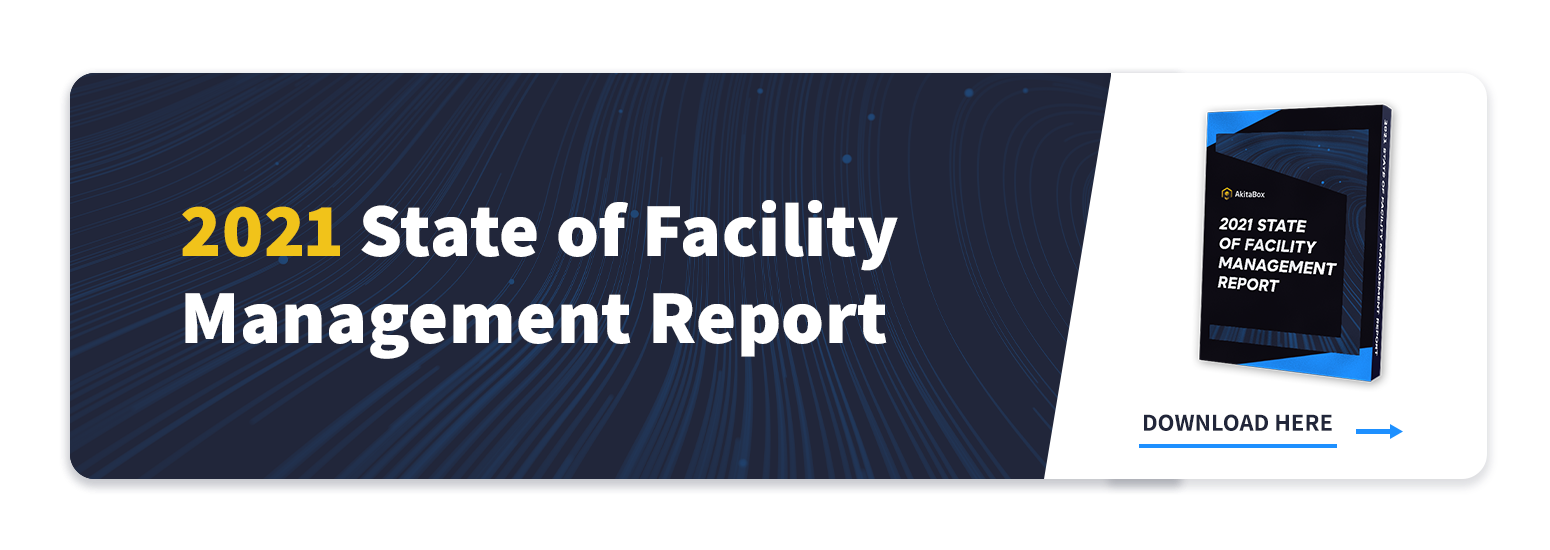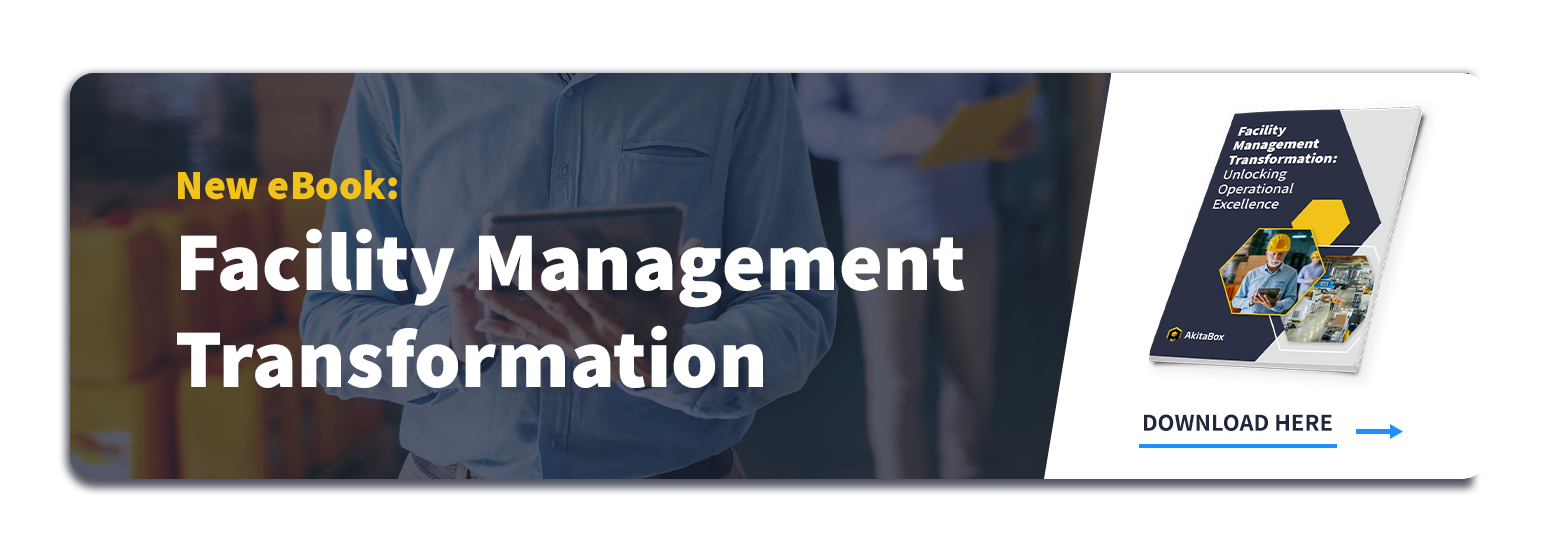Recently, AkitaBox sat down with Michel Theriault to discuss his experience in facilities management, what challenges he sees FM having today, and his outlook for the future. Michel has over 30 years of experience in facility management as both a facility manager and more recently as a consultant at FM Insight Consulting. He’s an advocate for the facility management industry as a frequent speaker, trainer, published author, and active member of IFMA and other trade associations. Learn more about Michel.
Q: Thank you for taking the time today to chat, Michel. Could you give our readers a quick rundown of your background and experience in facilities management?
Michel: So I have spent 31 years in the facility management space. For the first 18 years of my career, I worked on a facilities team, first with Bell Canada and then transitioning to a facility outsourcing company. Then about 13 years ago I moved on to become a consultant, where I now help organizations identify things that need to change and help them demonstrate those needs to senior leadership.
During these 31 years, I have seen and worked with facility teams of all different sizes, org structures, and industries which have given me a wealth of knowledge to pull from as I help organizations in my consulting role.
Q: How did you get into the facility management industry?
Michel: It wasn’t a clear career choice at the time, I just sorta fell into it. I was taking an engineering degree with a computer science option and got hired by Bell Canada as a summer student to help them develop their own CMMS. Two years later, I got a full-time job in facility management with them and the rest is history.
Q: You know, that is something we see a lot from facilities professionals we speak to. They didn’t set out to join the industry, it just kinda happened.
Michel: Yes, that is pretty common for people in my generation. These days though, I am very encouraged to see the number of the university and college-level courses that are for facility management all the way up to a master’s degree program. It’s great for our industry to see these programs in place.
“I think the biggest misconception is that facilities teams are only tactical. When people think of facilities teams, they think of them keeping the lights on, fixing broken equipment, and moving furniture. People don’t see the strategic value…” |
Michel: Well, typically my clients ask me to do some kind of review. There are a variety of types, but some of the most common are:
- Strict Benchmarking – This is where I compare their organization to either an association, industry standards, or do a peer-to-peer comparison.
- In-house vs outsourcing business case – This works both ways, where I will either review work they are doing in-house currently and determine what can be outsourced or vice-versa.
- Organization and operational review – This can cover a wide area ranging from the org structure, policies, procedures, budgeting, capital planning, project management, and many more. I then compare my client’s current state to industry averages, which results in a recommendation they can act on or bring to senior management.
No matter what type of review I am doing, I am focused on the strategic point of view looking at how to manage and administer a quality, professional, and effective facility management department.
Q: What is the most common challenge you see amongst the FM teams you work with?
Michel: The biggest issue I see is that facilities teams are so busy doing things they don’t have the time to evaluate if they are actually being effective and efficient. For example, when I work with a client I always ask for policies and procedures but frequently they have only documented those related to occupational health and safety. So when I ask, “How do you deal with an emergency at 2 am?” They give me an explanation but nothing is written down. It is all in someone’s head but there is no document laying out specific criteria about how to respond when to respond, and who is responsible.
What this creates is a treadmill effect for FMs. They don’t have enough time to make the case to senior leadership to get the resources they need. And since they don’t have the resources they need, they never have the time to make that case.
Q: In your opinion, what is the biggest misconception about FM?
Michel: I think the biggest misconception is that facilities teams are only tactical. When people think of facilities teams, they think of them keeping the lights on, fixing broken equipment, and moving furniture. People don’t see the strategic value and why facilities are so important, especially from a senior leadership side. To leadership, facilities are often looked at as nothing more than a cost line.
Q: Do you think these misconceptions are changing?
Michel: There are pockets of better awareness but I don’t see enough change over the last 30 years to make me comfortable enough to say we are making much progress. This is still a broad issue for many organizations.
Q: You’ve been in the facility management space a long time. What has been the biggest change you’ve seen over the last 30 years?
Michel: Within the industry, professionalization is improving across the board. There are more certifications and educational opportunities than ever for people to get trained in FM. This is bringing new ideas, best practices, and innovative processes to FM that helps facilities deliver even more value to organizations.
Unfortunately, I don’t see the recognition of this change outside of facilities teams often. I think it will be a long process, but as the older folks like myself start to retire and younger ones who have had this professional training come up, I think they will really be able to turn the perception of facilities as only a cost line around.
Q: Do the teams you work with wish they got more recognition from senior leadership?
Michel: Yes, I think they would like to have more appreciation from other departments. The facility folks themselves take pride in what they do. They know they do a good job and bring excellent value to the organization.
What I talk with them about is that they need to promoting that value to other departments and senior management. We are really bad at selling our industry and the value we bring to organizations.
This problem extends beyond just the teams in the field. I have been a member of IFMA since 1992. What I don’t see from the associations is an emphasis on improving standing within the corporate environment. They focus on training, best practices, awareness – but I don’t see much being done to equip facility managers and directors to be more visible and seen from senior management.
Q: So we have talked a lot about the challenges facing FM teams today. How can organizations better support their facility managers and directors going forward?
Michel: I think one of the biggest areas outside of giving FMs larger budgets and more resources, is really providing better business related education and training for their managers and directors. What often happens is the people who hold these leadership roles have been promoted from technician or engineer roles. So they come from a very technical background and they like to do things, but aren’t given the business training required to manage teams and make strategic decisions. Really, organizations should be providing the support to better educate and train these managers and directors in business management, which is really a large part of facility management leadership.
Q: What is one trend, best practice, etc that a lot of FM teams believe in, but is holding them back from future growth and effectiveness?
Michel: The big failing is becoming complacent and not looking to continuously improve. The tendency is to say we’ve done it this way for 15-20 years, it works, so let’s keep doing it. Not many facility teams are taking a hard look at the data behind what they do. It’s hard for facility managers who are answering phones and fixing problems to find time to do that.
With no feedback loop, facilities teams just keep doing things the same way they always have. Finding the time and taking an approach to optimizing maintenance can go a long way. For example, maybe we don’t need to change those filters every three months, they can wait till every five. Analyzing your data can go a long way to reducing costs, freeing up resources, and improving the quality of your buildings.
Be Prepared For the Future
We want to thank Michel Theriault for taking the time to sit down with us. You can Learn more about Michel or see how FM Insight Consulting can help your FM organization. Looking for more resources to help improve yourself or your FM team? We got you covered.

